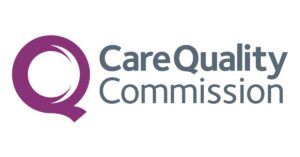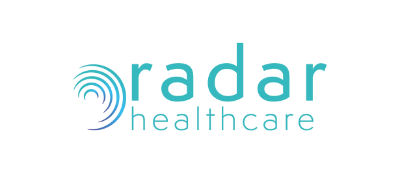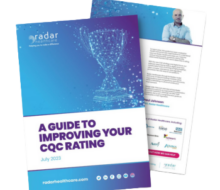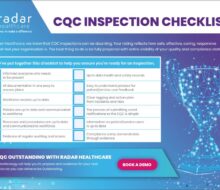What is the CQC? All about the Care Quality Commission
04 September 2023
Tags:
 What is the CQC?
What is the CQC?
The Care Quality Commission (CQC) is an independent regulatory body responsible for overseeing and inspecting health and social care services in England. Its primary aim is to ensure that these services meet the fundamental standards of quality and safety, promoting the well-being of service users.
In this blog, we will explore the essential functions of the CQC, its inspection processes, and how it contributes to the improvement of care services.
CQC FAQs
CQC stands for the Care Quality Commission, which is the independent regulator of health and social care in England.
The CQC’s primary role is to monitor, inspect, and regulate health and social care services to ensure they meet fundamental standards of quality and safety.
CQC fundamental standards are a set of regulations that health and social care providers must meet to ensure the safety, effectiveness, responsiveness, and quality of care they deliver.
The five fundamental standards are as follows:
- Safe
- Effective
- Caring
- Responsive
- Well-led
CQC inspections involve thorough evaluations of health and social care providers to assess their compliance with regulatory standards. Inspectors assess various aspects, including patient/resident safety, cleanliness, staff training, and quality of care.
CQC regulations outline the expectations placed on health and social care providers and guide them in meeting the CQC’s standards. These regulations cover areas such as safety, leadership, governance, and person-centered care.
Health and social care providers can prepare for CQC inspections by familiarising themselves with CQC standards and regulations, conducting internal audits, addressing any areas of non-compliance, and ensuring staff are adequately trained.
Failing a CQC inspection can have serious consequences for healthcare providers, including enforcement actions such as warning notices, fines, or even closure of services in severe cases of non-compliance.
The frequency of CQC inspections varies depending on the type of service provided and its previous inspection rating. Generally, health and social care providers are inspected at least once every two years, although this can vary.
For more information about the CQC, its standards, regulations, and the latest updates, you can visit the official Care Quality Commission website. We also have various resources available including a CQC Checklist, CQC Guide, and numerous blogs on the subject. (scroll down for more insightful resources).
Ensuring Fundamental Standards of Care
The CQC plays a pivotal role in regulating the quality of care services by inspecting and assessing their performance against five fundamental standards:
- Safe: Protecting service users from abuse and harm.
- Effective: Ensuring care, treatment, and support lead to positive outcomes.
- Caring: Encouraging compassionate and respectful treatment.
- Responsive: Organising services to meet individual needs.
- Well-led: Effective leadership and governance for quality care.
To maintain these standards, the CQC employs two types of inspections: comprehensive and focused. Comprehensive inspections cover all key aspects of care and are regularly conducted to evaluate a service’s overall quality. Focused inspections, on the other hand, address specific concerns or changes in provider circumstances, sometimes not encompassing all five standards.

Diverse Service Types
The CQC assesses various types of services, including NHS trusts, GP practices, care homes, mental health services, and more. When inspecting NHS trusts, the CQC focuses on eight core services, such as surgery, critical care, and maternity care, among others. For GP practices, inspections consider the quality of care provided to specific population groups, ensuring tailored and effective services.
We are really keen to share our experiences to help other organisations deliver better care for patients. We are not just ticking a box for CQC, we genuinely care about what we do and creating the best possible outcomes for patients. Radar Healthcare helps us to do that by shared learning, learning from excellence and highlighting how we have dealt with any issues.

CQC Inspection Process
Inspections by the CQC are thorough and structured to gather comprehensive evidence. The process involves:
- Initial Meeting: CQC inspectors introduce themselves and explain the purpose of the inspection.
- Provider Presentation: Acute hospitals, GP practices, or GP out-of-hours services present their self-assessment.
- Data Gathering: Evidence collection through interactions with service users, staff interviews, observations, and document reviews.
- Feedback Session: Inspectors share their findings with senior staff, identify issues, suggest improvements, and outline future inspection plans.

Ratings and Transparency
The CQC rates organisations based on the five fundamental standards, providing ratings such as outstanding, good, requires improvement, or inadequate. These ratings are accessible to the public on the CQC website, empowering individuals to make informed decisions about care providers. For organisations rated as inadequate, the CQC mandates improvements to ensure the delivery of high-quality care.
Role in Improving Care
The CQC’s role extends beyond inspections; it collaborates with various stakeholders, including care providers, NHS England, and local groups, to enhance the quality of care services. By analysing data, soliciting public views, and suggesting improvements, the CQC actively contributes to elevating the standards of care across the country.
Conclusion
The Care Quality Commission is a crucial entity dedicated to safeguarding the quality and safety of health and social care services in England. Through rigorous inspections, transparent ratings, and a commitment to improvement, the CQC ensures that individuals receive care that is safe, effective, and compassionate. As the landscape of care evolves, the CQC continues to play a vital role in shaping the future of healthcare in the country.
If you’re seeking ways to improve your CQC rating and enhance the quality of care in your organisation, consider exploring Radar Healthcare’s comprehensive software solutions. With a focus on safe, effective, and person-centered care, Radar Healthcare can help you navigate the changing landscape of CQC inspections and deliver exceptional services to your clients.
Improve your CQC rating“Prior to Radar Healthcare, we had a very poor CQC inspection. The concerns were primarily around governance and documentation. We have yet to have another CQC inspection, however, when the local authority came to review, we were able to provide them with a digital source that evidenced all documents, up-to-date audits, incidents, and ongoing actions, which they were really pleased to see. They were impressed that we were pinpointing issues but then automatically creating action plans and steps to resolve them efficiently and effectively - and that is exactly what Radar Healthcare’s system allows you to evidence and continue to do.”












